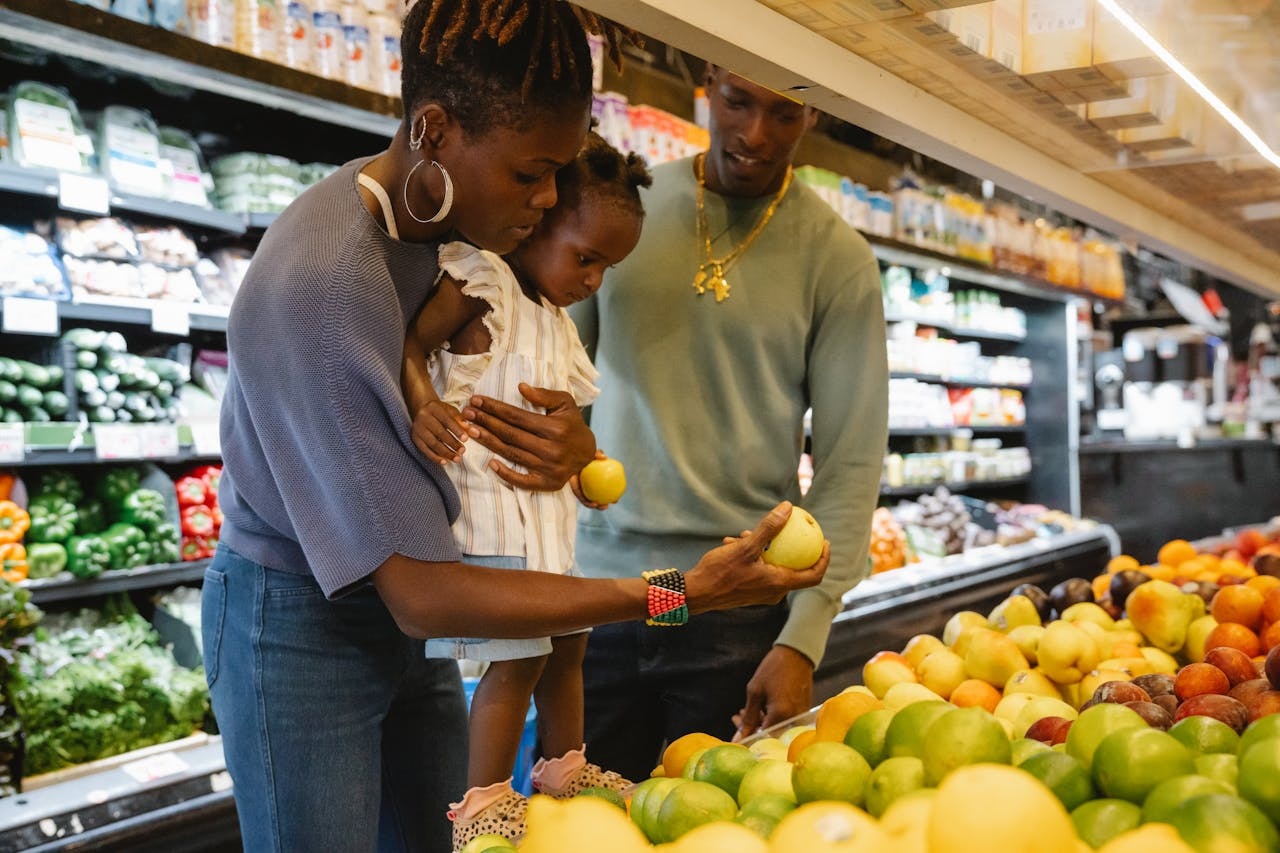
Photo: Greta Hoffman/Pexels
Everyone should have the food and nutrition they need to thrive. But today, people around the world face hunger in their daily lives, including 47 million in the United States alone. As prices at the grocery store have increased and COVID-era benefits have expired over the last two years, the number of people facing food insecurity has only grown.
The climate crisis threatens to make this problem even worse. Droughts and floods damage crops, natural disasters like wildfires and hurricanes disrupt harvests, and severe heat threatens the safety of those who grow our food. To ensure that everyone has the ability to feed their families, we must adopt an approach to farming that promotes sustainable agriculture, protects farmworkers and family farmers, and ensures that no one goes hungry.
This is what makes the Farm Bill so important. This massive piece of legislation has a wide-reaching impact on our food system. It includes agricultural subsidies, nutrition assistance, climate resiliency programs, and more. While it is traditionally passed every five years, the 2018 Farm Bill was extended to last until September 2024. As Congress debates the newest version of this law, it is vital that they pass a just Farm Bill that provides for everyone’s basic needs and promotes sustainable agriculture to ensure food justice for future generations.
Here’s what you need to know.
1. The Farm Bill is crucial for reducing hunger.
A majority of funding in the Farm Bill goes towards nutrition assistance programs that help low-income people to afford food. These include the Supplemental Nutrition Assistance Program (SNAP), which benefits more than 42 million people each month, along with child nutrition funding and the WIC program for women, infants, and children.
These vital programs could be cut in the next Farm Bill. One proposal being debated in Congress would slash funding for SNAP, worsening hunger at a time when food insecurity is already on the rise. The proposal would also allow for the program’s administration to be outsourced to private companies, putting the health and well-being of millions of people into the hands of for-profit contractors.
International nutrition programs to reduce global hunger are also at risk. Included within the Farm Bill is the Food for Peace program, in which food is purchased from U.S. farmers and provided to those in need around the world in order to prevent famine and starvation. While there is room for improvement in the program in terms of supporting sustainable agriculture grown locally within these countries, current proposals in the House of Representatives would weaken the program, cutting off food aid for as many as 2.3 million people.
2. Climate-friendly conservation policies in the Farm Bill could be gutted.
Another important aspect of the Farm Bill is its effect on climate policy. The bill provides billions of dollars to support land conservation, the U.S. Forest Service, and sustainable agriculture. The Inflation Reduction Act of 2022 expanded on these investments, providing $19.5 billion in funding for conservation programs that reduce greenhouse gas emissions. This funding has helped farmers in every state to reduce pollution and preserve local ecosystems, a win-win situation in the struggle against climate change.
Despite this success, some in Congress have proposed redirecting this funding away from climate-friendly conservation policies. Agriculture makes up more than 10% of our national greenhouse gas emissions. The conservation measures in the Inflation Reduction Act seek to reduce this contribution to climate change, thus providing benefits both to those growing our food and to those shopping for groceries. The next Farm Bill must defend this funding, and should even seek to expand upon these effective conservation programs.
3. Corporate greed is undermining the Farm Bill at the expense of small-scale farmers and hungry families.
While Congress is threatening to cut programs in the Farm Bill that are the most beneficial to communities, the same cannot be said about programs that fatten corporate profits. Since the last Farm Bill, large agribusiness corporations have spent more than half a billion dollars on lobbying Congress to secure their priorities. One example is a proposed increase in commodity supports for a small handful of cash crops. This reform would benefit only 0.3% of farms–farms that are disproportionately run by large agribusinesses.
For years, small and medium-sized farms have suffered under the rapid consolidation of industrial agribusiness, leaving a few powerful corporations to squeeze money out of farmers’ pockets and hollow out local communities. We need a Farm Bill that supports the people working every day to provide our nation with food, instead of funneling money toward big companies and absentee landowners.
Worse yet, this proposed increase in subsidies for big ag is being paid for by the proposed cuts to nutrition assistance. In other words, Congress would be taking money out of the pockets of low-income people trying to keep food on their tables, and instead filling the coffers of large corporations.
4. The Farm Bill must confront and rectify historical inequalities.
The exclusion of Puerto Rico and two other U.S. territories (American Samoa and the Northern Mariana Islands) from SNAP has contributed to extraordinarily high levels of poverty in these often neglected corners of the United States. Hunger is also exacerbated by the exclusion of many low-income people in the U.S. from nutrition assistance, including people with drug convictions and immigrants who would otherwise be eligible for assistance.
Meanwhile, past and present discrimination by the U.S. Department of Agriculture has held back Black farmers from achieving the same level of success as their white counterparts. The Inflation Reduction Act has aimed to compensate farmers for this discrimination, but more work is needed to achieve equality, especially for heir farmers at risk of losing their land.
Advocating for people and the planet
The ways that we grow and distribute our food affect all of us. Everyone deserves to be free from hunger, and sustainable farming is key for accomplishing this goal while also protecting our environment. We need policies that will move us away from a destructive food system that benefits the few, and toward a regenerative system that meets human needs and preserves the health of our planet. To do this, we must make it clear to Congress that we need a just Farm Bill for all.
To provide for real food justice, this year’s Farm Bill should expand and improve upon both domestic and international nutrition programs to reduce hunger. It should build upon recent victories in promoting sustainable agriculture, instead of weakening them. The new Farm Bill should also support small and medium-size farmers– including Black farmers and others facing inequality– instead of propping up big corporations. Together, these ideas can help to spark a transformative change to improve our food system for the better.

